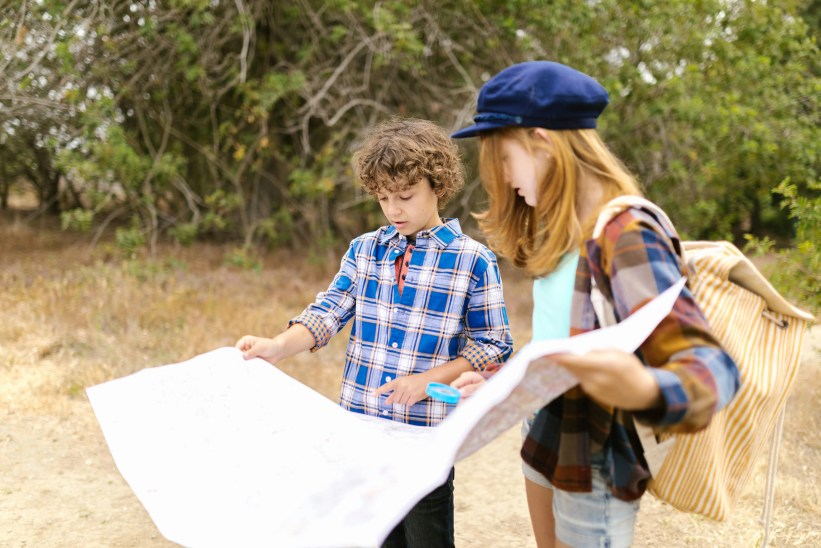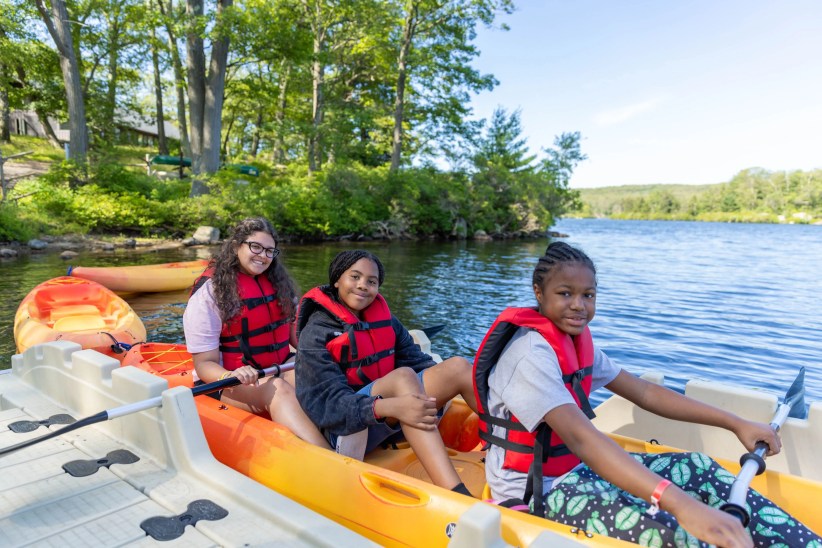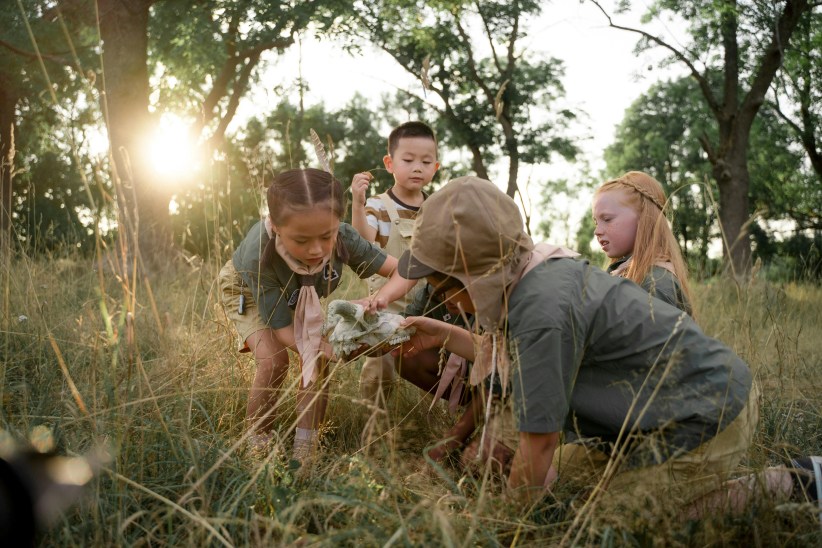For generations, summer camps have been accepting communities where children gain important life skills such as self-confidence, leadership, and respect for others. And rules—governing facets of camp life such as participation, food rules, technology usage, and dress codes—are a large part of what has allowed camps to maintain these positive environments.

With so many options available, a parent’s primary job when selecting a camp for their child boils down to one thing: Their values. While that might not exactly be the first thing that comes to mind—and rightly so—you may be initially more focused on the practical matters, such as distance from home and counselor-to-camper ratio—consider this: Your child will be spending a good portion of the summer under the rules and regulations of someone else, so it is necessary to make sure that your standards and beliefs are in line with the camp’s. Just as schools have various rules, missions, and principles, so do camps.ultiWhile individual camp philosophies differ, one common belief holds true: Camp rules are a necessity. Mark Transport, director and owner of Camp Taconic in Hinsdale, MA, explains: “Any organization, family, society, or camp needs rules. There has to be balance between rules and a certain amount of freedom. There is no way to have a group of people together without rules.” Naturally, you want to make sure that your child is safe and enjoys the camp experience, but you also want to make sure the camp’s values align with your family’s beliefs, and that your child will get the most they can out of their time there, physically, mentally and spiritually.
Here are some facets to consider regarding camp rules and regulations to ensure a positive summer camp experience.
Clothing
Whether the camp mandates a uniform shirt or allows a more liberal clothing policy, the goal is to have children fit in, not be judged by their clothes, and feel fully comfortable. Often, the societal pressures children feel during the year to wear certain brands or wear makeup can interfere with everyday camp activities. To reduce these pressures, many camps have implemented dress codes.
Uniforms allow children to focus on their activities and bonding rather than what another camper is wearing. Camps Equinunk and Blue Ridge, which are brother-sister sleepaway camps in Wayne County, PA, are uniform camps. Director Adam Baker feels that uniforms take the implications of what a camper wears out of the equation. “Children aren’t being competitive based on what they wear,” he explains. “They are forming relationships that are built on who someone is, not the type of clothing they have.” Baker says parents are surprised by how much they like the uniforms. “Our camp parents didn’t think they wanted a uniform camp, but they come for a tour and see all the campers wearing camp t-shirts and love how simple and inclusive it is.” Besides camps that have a uniform, some camps restrict campers from bringing brand-name clothing, or ask that campers only pack solid-colored clothing.
Makeup, hairdryers, curling irons, and hair straighteners are not allowed at some camps. For example, at Camp Echo Lake, a co-ed sleepaway camp in the Adirondacks, campers aren’t allowed to bring these items to camp. “Philosophically, as a camp, we believe it’s a camper’s character that matters most, not their appearance,” says Laurie Rinke, director of Camp Echo Lake. “By removing these items from camp, campers aren’t wasting time in front of the mirror or saying they don’t want to swim because their makeup will be messed up. They are focused on activities and having fun over what they look like.”
Electronics
Along with restrictions on clothes and accessories, the majority of summer camps don’t allow smart phones, iPads, laptops, or electronic games. “During the school year, children’s interactions are all done through technology, and they aren’t developing the skills to communicate face to face. By eliminating technology at camp, campers and staff are talking to each other and forming true relationships,” Baker comments. “It’s initially a real challenge for both campers and staff to overcome the impulse to check their phone for social media updates and texts, but once they do make the separation, they are more relaxed and less anxious and able to be part of all that is going on around them.” Lauren Bernstein, owner and director of Camp Walden, explains that the camp has a policy that if a camper is caught with a phone, they are sent home for three days. “Having no phones creates an opportunity to talk, laugh, and interact with each other which is what camp is all about. Since we put the three-day home policy in place, it’s rare that someone breaks the rule. Parents don’t want to come up to camp to pick up their child in the middle of the summer, and no camper wants to leave camp and miss out on any of the fun.”
Food
Camp food has encountered more dramatic changes over the years than any other area. Back in the day, you were handed a peanut butter and jelly sandwich, while today your child may be privy to gourmet meals and snacks tailored toward their individual health issues. With food allergies on the rise, the rules about food are stricter to provide a safe place for all children. Brian Krug, Director of Camp Canadensis located near the Pocono Mountains in Pennsylvania, says that food-wise, the camp “offers something for everyone. It is a nut-free camp and has a separate gluten-free station. Plain items are offered at every meal such as plain pasta, or a plain cheese sandwich, as well as a salad bar. Picky eaters and those with allergy diets are monitored by the camp mom.”
Most camp directors agree that so much food is typically offered throughout the day that there is no need for children to not eat or hide food. Counselors and staff monitor food consumption.
“If campers are not hungry during a meal, they can talk to one of the counselors or village staff members who will have access to a variety of granola bars, and other snacks,” explains Laura Kriegel, co- executive director at Camp Stomping Ground located on the western edge of the Catskills near Binghamton, NY. “We want to make sure that everyone’s physical needs are met at camp, so we keep a close eye on campers that consistently appear not to be hungry. We might call and talk to a parent to ask for advice about what food would be comforting for a camper. No camper is ever forced to stay at camp. If a camper is expressing unhappiness by refusing to eat, it is always possible for that camper to go home. We work hard to accommodate campers’ choices regarding food, and understand that having access to food they like can make or break a week at camp.
Social
Every good camp operates with the child’s growth and progress in mind, but the way they reinforce their core values may show up in a number of different ways.
“Kids have to participate in everything and they know that,” Transport says of Camp Taconic. “There is no option to sit out and do nothing. Our camp has set schedule according to age. Up until age 10, they do same-age activities with one elective a day. As they get older, they get more electives. By 13 and above, almost all day is elective. We want to expose younger kids to ever activity.”
In contrast, Kriegel says that Camp Stomping Ground operates a little differently. “Campers need to be supervised at all times,” she says. “That being said, there are no mandatory activities at camp. If a camper is shy or does not want to participate in a particular activity, there are always hang-out locations where the camper can read a book, play board games, or draw pictures. If a camper has an idea for an activity that they do not see on the schedule for the week, they are encouraged to talk to their counselor, village leader or program director so that we can figure out a way to include their ideas. Learning to make decisions that lead to more joy in life often means spending time by yourself or learning from missed opportunities.”
A big concern among parents is making friends. Krug says that by the time a child gets to Camp Canadensis, he/she has already attended two camp events (one in April and one in June) and had a home visit from a counselor.
“The child already feels as if they know the expectations of camp and the counselors have had the opportunity to get to know each child,” Krug explains. “One of the tenets the child learns is the underlying philosophy of the camp, which is the 10 values that each camper should strive to attain, including personal growth, integrity, responsibility. “We also have a weekly snack chat, in which a snack is delivered to each bunk along with a guided conversation based on two values per week. It is one of my favorite things to do, to walk into a bunk and hear the children discussing their views on honesty and inclusiveness.”
Transport adds: “My advice is simple: If a parent chooses a camp that they feel is the right environment and they keep them there, they will have friends for life. The kids see each other at their worst and accept each other, learn tolerance and operate at much higher level when together 24/7.”
Jeff Grabow, the owner and director of Camp Echo in Bloomingburg, NY (about 90 minutes from NYC), says: “From the moment our children board the bus to come to camp, our program is designed to integrate our population. Icebreakers, circle-time, and games are immediately initiated. The goal is for every camper and counselor to be comfortable letting their hair down and being themselves with the confidence that they will be will be accepted for who they are.”
Grabow sums it up: “There is a camp for every child, so finding the right fit for both makes for a fruitful journey for everyone.”






















